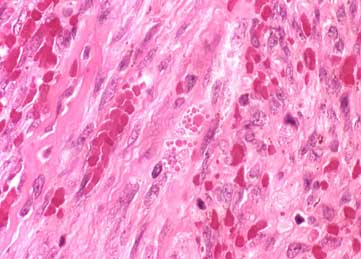Home » Course Layouts » Free Course Layout Udemy
Offers an integrative molecular and biological perspective on public health problems. Explores population biology and ecological principles underlying public health and reviews molecular biology in relation to public health biology. Modules focus on specific diseases of viral, bacterial, and environmental origin. Uses specific examples of each type to develop the general principles that govern interactions among susceptible organisms and etiologic agents. Devotes special attention to factors that act in reproduction and development. Places emphasis on common elements encountered in these modules. These may include origin and dissemination of drug resistance, organization and transmission of virulence determinants, modulation of immune responses, disruption of signal transduction pathways, and perturbation of gene expression. Also considers the role of the genetic constitution of the host.
0
20
English
English [CC]
- Learn basic syntax that can apply to any language.
- Learn what is a programming language and the basic concepts for beginners.
- Understand what is Javascript in it's truest form.
- Know the basic syntax of Javascript.
- Know some hidden quirks in Javascript.
Description
Course Objectives
Upon completion of this course, you will be able to:- List and explain the biological principles required to understand the distribution of infectious and non-infectious diseases of public health importance, the current research related to public health problems, and the methods for the prevention and control of the disease.
- Illustrate the application of biological principles in attacks on diseases of public health significance.
- Highlight areas of public health where recent biological research is likely to be of particular importance.
Readings
There is no required textbook for the course. However, the following texts are suggested as references. All except the last one are available electronically by clicking on the hyperlinked book title.- Medical Microbiology. 4th ed. Baron, Samuel, editor. Galveston (TX): University of Texas Medical Branch; c1996.
- Immunobiology. 5th ed. Janeway, Charles A.; Travers, Paul; Walport, Mark; Shlomchik, Mark. New York and London: Garland Publishing; c2001.
- Biochemistry. Berg, Jeremy M.; Tymoczko, John L.; and Stryer, Lubert. New York: W. H. Freeman and Co.; 2002.
- Molecular Biology of the Cell. 4th ed. Alberts, Bruce; Johnson, Alexander; Lewis, Julian; Raff, Martin; Roberts, Keith; Walter, Peter. New York: Garland Publishing; 2002.
- Genomes. 2nd ed. Brown, T. A. Oxford, UK: BIOS Scientific Publishers Ltd; 2002.
- Introduction to Genetic Analysis. 7th ed. Griffiths, Anthony J. F.; Miller, Jeffrey H.; Suzuki, David T.; Lewontin, Richard C.; Gelbart, William M. New York: W. H. Freeman & Co.; c1999.
- Genes and Disease. Bethesda (MD): National Library of Medicine (US), NCBI.
- Cancer Medicine. 6th ed. Kufe, Donald W.; Pollock, Raphael E.; Weichselbaum, Ralph R.; Bast, Robert C., Jr.; Gansler, Ted S.; Holland, James F.; Frei III, Emil, editors. Hamilton (Canada): BC Decker Inc.; c2003.
- Biology, 5th ed. (1998), by NA Campbell, JB Reece, LB Mitchell. Benjamin-Cummings Publishing Company, San Francisco.
Course Requirements
Two examinations will be given - a midterm exam and a final exam. Books, notes, and other reference materials may be used in completing these exams, but collaboration among students is not allowed. The format of all examinations will be short-answer. Four exercises are required for this course. The exercises are designed to help you process the information in the lectures.Course Format
This course covers the following topics: Module 1: Disease ecology Module 2: Pathogens and host immunity Module 3: Treatment and genomics of infectious diseases Module 4: Current molecular techniques and cancer genetics Module 5: Breast and prostate cancer Module 6: Current topics in public health biologyCourse content
-
- Lecture 1: Ecological Principles of Disease Systems: Population Interactions and Dynamics 01:00:00
- Lecture 2: Disease Ecology 01:00:00
-
- Lecture 3: Pathogens: Nature and Transmission 01:00:00
- Lecture 4: Host Response to Infection: The Immune Response and Vaccination 01:00:00
- Lecture 5: Treatment of Infectious Disease: Drugs and Drug Resistance 01:00:00
- Lecture 6: Genomics and Infectious Disease 01:00:00
- Lecture 9: Breast Cancer 01:00:00
N.A
- 5 stars0
- 4 stars0
- 3 stars0
- 2 stars0
- 1 stars0
No Reviews found for this course.










